Ahead:
Transition to Adult Life for Persons with Disabilities
Visit to download the full and correct content document: https://ebookmass.com/product/the-road-ahead-transition-to-adult-life-for-persons-wit h-disabilities/

More products digital (pdf, epub, mobi) instant download maybe you interests ...
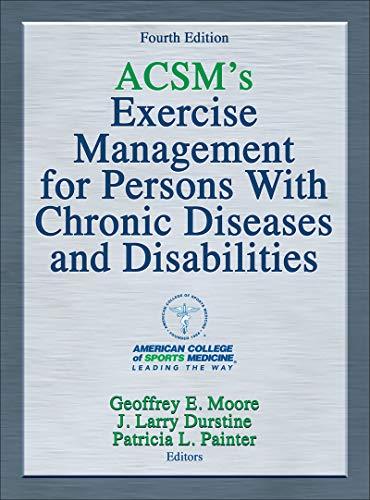
ACSM’s Exercise Management for Persons With Chronic Diseases and Disabilities 4th Edition, (Ebook PDF)
https://ebookmass.com/product/acsms-exercise-management-forpersons-with-chronic-diseases-and-disabilities-4th-edition-ebookpdf/
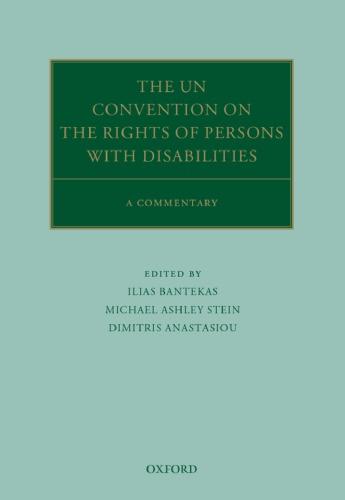
The UN Convention on the Rights of Persons with Disabilities: A Commentary Ilias Bantekas
https://ebookmass.com/product/the-un-convention-on-the-rights-ofpersons-with-disabilities-a-commentary-ilias-bantekas/

ACSM’s Exercise Management for Persons With Chronic Diseases and Disabilities 4th Edition – Ebook PDF Version
https://ebookmass.com/product/acsms-exercise-management-forpersons-with-chronic-diseases-and-disabilities-4th-edition-ebookpdf-version/
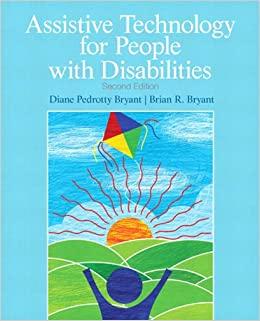
Assistive Technology for People with Disabilities (2nd Edition)
https://ebookmass.com/product/assistive-technology-for-peoplewith-disabilities-2nd-edition/
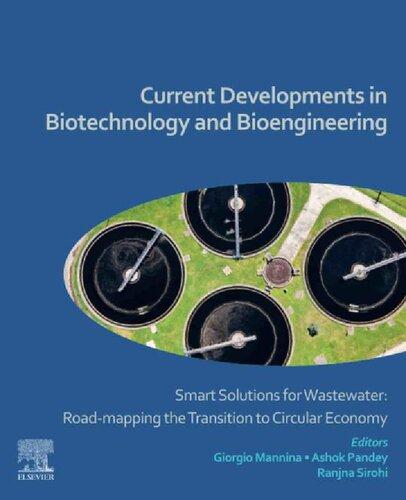
Current Developments in Biotechnology and Bioengineering: Smart Solutions for Wastewater: Roadmapping the Transition to Circular Economy
Giorgio
Mannina
https://ebookmass.com/product/current-developments-inbiotechnology-and-bioengineering-smart-solutions-for-wastewaterroad-mapping-the-transition-to-circular-economy-giorgio-mannina/
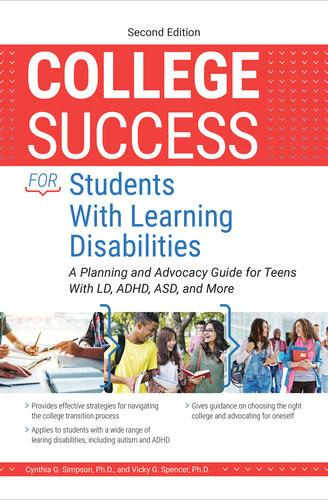
College Success for Students With Learning Disabilities
Cynthia Simpson
https://ebookmass.com/product/college-success-for-students-withlearning-disabilities-cynthia-simpson/
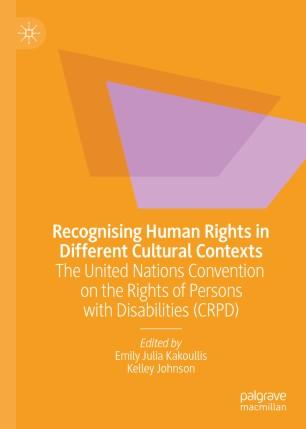
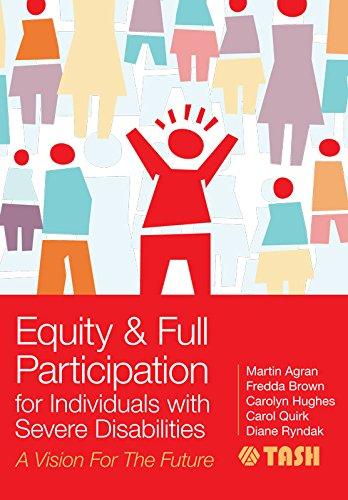
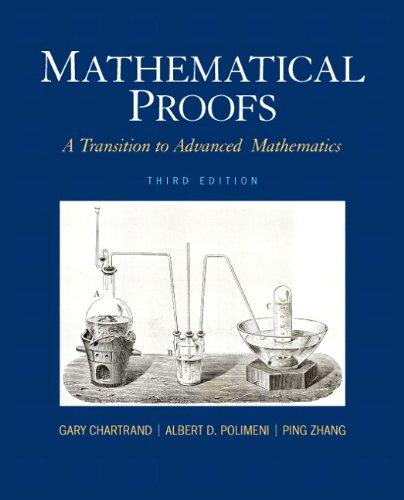
Recognising Human Rights in Different Cultural Contexts: The United Nations Convention on the Rights of Persons with Disabilities (CRPD) 1st ed. Edition
Emily Julia Kakoullis
https://ebookmass.com/product/recognising-human-rights-indifferent-cultural-contexts-the-united-nations-convention-on-therights-of-persons-with-disabilities-crpd-1st-ed-edition-emilyjulia-kakoullis/
Equity and Full Participation for Individuals with Severe Disabilities: A Vision for the Future – Ebook PDF Version
https://ebookmass.com/product/equity-and-full-participation-forindividuals-with-severe-disabilities-a-vision-for-the-futureebook-pdf-version/
Mathematical Proofs: A Transition to Advanced Mathematics (Featured Titles for Transition to Advanced Mathematics) 3rd Edition, (Ebook PDF)
https://ebookmass.com/product/mathematical-proofs-a-transitionto-advanced-mathematics-featured-titles-for-transition-toadvanced-mathematics-3rd-edition-ebook-pdf/
THE ROAD AHEAD
Assistive Technology Research Series
The Assistive Technology Research Series (ATR) aims to disseminate and archive assistive technology research summaries widely through publishing proceedings, monographs, and edited collective works. The series aspires to become the primary world-wide source of information in assistive technology research, through publishing state-of-the-science material across all continents. ATR defines assistive technology (AT) as any tool, equipment, system, or service designed to help develop, maintain or improve a person with a disability to function in all aspects of his or her life. Assistive technology helps people of all ages who may have a broad range of disabilities or limitations. The ATR series will accept manuscripts and proposals for a wide range of relevant topics.
Editor-in-Chief:
Rory A. Cooper
Editorial Board:
Angel Gil Agudo, Geoff Bardsley, Robert Bingham, Christian Buhler, H.S. Chhabra, Gerry Craddock, Jin Dewen, Sten Ekman, Martin Ferguson, Shirley G. Fitzgerald, Antal (Tony) Huba, Jeffrey Jutai, Kiyomi Matsuo, Mounir Mokhtari, Johan Molenbroek, Hisaichi Ohnabe, Paul F. Pasquina, Marcia Scherer, Nigel Shapcott, Richard Simpson, Ronaldo de Souza Moraes Jr., Thijs Soede, Pierre Soto, Eric Tam, Osamu Tanaka, Julian Verkaaik, Howard Wactlar, Hans-Werner Wahl, Lloyd Walker, Jue Wang, Brian Woods, Lucas van der Woude, Yusheng Yang
Volume 34
Recently published in this series
Vol. 33. P. Encarnação, L. Azevedo, G.J. Gelderblom, A. Newell and N.-E. Mathiassen (Eds.), Assistive Technology: From Research to Practice
Vol. 32. K.J. Turner, A Confl icted View of Telehomecare After a 20 Year Journey
Vol. 31. K.J. Turner (Ed.), Advances in Home Care Technologies - Results of the MATCH Project
Vol. 30. A.P. Glascock and D.M. Kutzik (Eds.), Essential Lessons for the Success of Telehomecare - Why It's not Plug and Play
Vol. 29. G.J. Gelderblom, M. Soede, L. Adriaens and K. Miesenberger (Eds.), Everyday Technology for Independence and Care - AAATE 2011
Vol. 28. H. Ohnabe, M. Kubo, D.M. Collins and R.A. Cooper (Eds.), Selected Papers from the Japanese Conference on the Advancement of Assistive and Rehabilitation Technology23rd JCAART 2008, Niigata
Vol. 27. J.F.M. Molenbroek, J. Mantas and R. de Bruin (Eds.), A Friendly Rest Room: Developing Toilets of the Future for Disabled and Elderly People
ISSN 1383-813X (print)
ISSN 1879-8071 (online)
Trans
T ition to A The R Adult Li
Road A ife
Ahead
for Pe
Edited by Keith Stor
Touro Da Chapm
ro University awn Hun man Universi
ersons wi y rey y, USA nter ty, USA
ith Disabbilities





© 2014 The authors and IOS Press.
All rights reserved. No part of this book may be reproduced, stored in a retrieval system, or transmitted, in any form or by any means, without prior written permission from the publisher.
ISBN 978-1-61499-312-4 (print)
ISBN 978-1-61499-313-1 (online) Library of Congress Control Number: 2013952634
Publisher
IOS Press BV
Nieuwe Hemweg 6B 1013 BG Amsterdam Netherlands fax: +31 20 687 0019
e-mail: order@iospress.nl
Distributor in the USA and Canada
IOS Press, Inc. 4502 Rachael Manor Drive Fairfax, VA 22032
USA fax: +1 703 323 3668
e-mail: iosbooks@iospress.com
LEGAL NOTICE
The publisher is not responsible for the use which might be made of the following information.
PRINTED IN THE NETHERLANDS
v The Road Ahead
K. Storey and D. Hunter (Eds.) IOS Press, 2014
© 2014 The authors and IOS Press. All rights reserved.
Dedication
The Road Ahead 3rd Edition
For the memory of my parents.
I would like to thank the following people for their positive influence during various stages of my professional career: Barry Atwood, Paul Bates, Mary Berman, Doug Blandy, Hazel Bond, Nick Certo, Janis Chadsey, Emma Doerr, Norm Douglass, Brigid Flannery, Joyce Forte, Damon Foster, Robert Gaylord-Ross, Harry Hanson, Linda Haymes, Tom Heinz, Curt Hendricks, Rob Horner, Vicki House, Dawn Hunter, Dawn Inafuku, Betsy Lance, Linda Lengyel, Tamara Loughrey, Dave Mank, Joyce Montgomery, Eva Moore, Lanny Morreau, Ernie Pancsofar, Michal Post, Tamy Ratto, Larry Rhodes, Jean Rowland, Dennis Sandow, Beth Stiffler, Irene Wilde, and Xiaoyan Yan.
I would also like to acknowledge my intellectual debt to Eric Blair, Ian Hunter, Robert Ingersoll, Aron Nimzovich, Winston O'Boogie, Tom Rover, Mike Royko, and B. F. Skinner.
Keith Storey
To my parents Dorothy and the late George Hunter; my siblings Pam and Jim Vassuer, Jim and Jane Hunter, and Karen Anderson; and my nieces and nephews, for their love, laughter, and for always being there for me.
I would also like to express my deep appreciation to the following people for their unconditional and caring support, wise guidance, endless patience, and for keeping me both grounded and maintaining a sense of humor during the creation of this book: Brian Alters, Don Cardinal, Bill Coyle, Barbara and Gregg Dorner, Rog Hacker, Allan Halcrow, Carrie Hayward, Ken and Sheila Houghton, Meryl and Murray Schrantz, Keith Storey, the College of Educational Studies faculty and staff at Chapman University, and, of course to my graduate and undergraduate students who continue to be my teachers and inspire me daily.
Dawn Hunter
Road Ahead Bios and Contact Information
Keith Storey (Co-Editor) received his Ph.D. from the University of Oregon. He is currently a Professor of Education and is the Special Education Program Chair at Touro University in Vallejo, California. He served six years as a classroom teacher working with individuals with a variety of disability labels. Keith is the recipient of the 1988 Alice H. Hayden Award from The Association for Persons with Severe Handicaps; the 1996 Hau-Cheng Wang Fellowship from Chapman University, which is presented for exceptional merit in scholarship; and the 2001 Robert Gaylord-Ross Memorial Scholar Award from the California Association for Persons with Severe Disabilities. He is a member of the Illinois State University College of Education Alumni Hall of Fame. He serves on the editorial boards of Research and Practice for Persons with Severe Disabilities, Education and Treatment of Children, Career Development for Exceptional Individuals, Journal of Vocational Rehabilitation, Journal of Positive Behavior Interventions, and Education and Training in Autism and Developmental Disabilities. He has also published the books Positive Behavior Supports in Classrooms and Schools: Effective and Practical Strategies for Teachers and Other Service Providers, Systematic Instruction for Students and Adults with Disabilities, Walking isn’t Everything: An Account of the Life of Jean Denecke, and Functional Assessment and Program Development for Problem Behavior: A Practical Handbook.
Keith Storey, Ph.D.
Professor of Education
Special Education Program Chair
Touro University
Graduate School of Education
1310 Club Drive
Vallejo, CA 94592
707/638-5973
keith.storey@tu.edu
Dawn Hunter. Ph.D., (Co-Editor) is a Professor of Education in the College of Educational Studies at Chapman University. In addition to teaching responsibilities, Dr. Hunter also serves as the Coordinator of the Special Education and Disability Studies Programs at Chapman. Prior to coming to Chapman, she served as the branch chief of the Severe Disabilities Branch, Office of Special Education Programs, U. S. Department of Education. Dr. Hunter has published in the areas of inclusive schooling, transition, positive behavioral supports, recreation, educational change, and collaborative partnerships. In addition to these research interests, Dr. Hunter is currently exploring innovative and effective teaching pedagogy in higher education, including the roles that empathy and compassion might play in the teaching and learning process.
Dawn Hunter, Ph.D. Professor
College of Educational Studies
Chapman University
333 North Glassell Street Orange, CA 92866
714/744-7674
FAX: 714/744-7035
dhunter@chapman.edu
Dr. Agran is a Professor in the Department of Professional Studies (Special Education Program) at the University of Wyoming. He received his Ph.D. from the University of Illinois at Urbana-Champaign. Dr. Agran has achieved national visibility for his research in the area of self-determination and student-directed learning and the education of students with severe disabilities. He has published 120 articles or chapters and has authored or co-authored 13 books. He served as a Fulbright Scholar in the Czech Republic and has guest lectured in Australia, Russia, and South Korea. He was the recipient of numerous awards, including: Outstanding Research and Scholarship Award (University of Wyoming); Outstanding Research Award, Council for Exceptional Children, Division on Developmental Disabilities; Donald McKay Outstanding Faculty Research Award (University of Northern Iowa); Thomas Haring Research Award (TASH), and JASH Distinguished Reviewer. He is the Editor-in-Chief of Research and Practice in Severe Disabilities (formerly JASH) and has served on the editorial board of 14 other journals. Dr. Agran has achieved national visibility for his research in the area of self-determination and student-directed learning and the education of students with significant disabilities. refereed journals in special education. He is a member of the TASH National Board of Directors.
Martin Agran, Ph.D.
Professor
Department of Professional Studies University of Wyoming Dept. 3374
1000 E. University Ave. Laramie, WY 82071-2000
307-766-2082 magran@uwyo.edu
Susan R. Copeland, Ph.D., BCBA-D is associate professor of special education in the Department of Educational Specialties at the University of New Mexico. She received her Ph.D. in special education from Vanderbilt University. Her research interests include developing strategies that allow individuals with disabilities to provide their own supports, direct their own lives, and enhance their active participation in their families, schools, and communities. Dr. Copeland teaches courses in readying/literacy instruction, advocacy and empowerment for individuals with severe disabilities, applied behavior analysis, and the history of and current understandings about intellectual disability.
Susan R. Copeland, Ph.D., BCBA-D
Special Education Program
Department of Educational Specialties
MSCO5 3040
1 University of New Mexico Albuquerque, NM 87131
505/277-0628
susanrc@unm.edu
Dr. Certo is a retired Professor and former Chair of the Department of Special Education at San Francisco State University (SFSU). He also served as Accreditation and Evaluation Coordinator for the College of Education at San Francisco State University. He received his doctorate from the Department of Behavioral Disorders at the University of Wisconsin in 1976. His was an early leader among professionals in the United States who demonstrated that individuals with severe intellectual disabilities could learn to function and work in integrated community settings, and is credited as co-editor managing the publication of the first textbook in his subspecialty area, severe intellectual disabilities. Prior to his position at SFSU, he was employed as a project officer in the U.S. Bureau of Education for the Handicapped, Executive Assistant to the Assistant Secretary for Planning and Evaluation in the U.S. Department of Health and Human Services, and as an Assistant Professor in the Department of Special Education at the University of Maryland. He has published for more than 35 years on the subject of transition to work and community living for youth with severe intellectual disabilities, and has a long and consistent record of federal funding to support the development of innovative approaches to transition.
Nicholas J. Certo, Ph.D.
Project Director
Intern Teacher-Training Project, and Coordinator Credential Evaluation Graduate College of Education
Accreditation Evaluation System
San Francisco State University Department of Special Education 1600 Holloway Ave. San Francisco, CA 94132.
Stacy K. Dymond, Ph.D., is an associate professor of special education at the University of Illinois at Urbana-Champaign. Her research interests focus on curriculum and instruction for students with severe intellectual disabilities in inclusive school and community settings. She is particularly interested in the use of service learning as a form of pedagogy for promoting access to instruction on academic and life skills. Dr. Dymond has directed grant funded projects related to service learning, access to the general curriculum, and personnel preparation, and serves on the editorial board of several journals. She also coordinates the special education teacher preparation program at the University of Illinois.
Stacy K. Dymond
Associate Professor
Department of Special Education
University of Illinois
288 Education Building, MC-708 1310 S. Sixth Street
Champaign, IL 61820-6990
sdymond@illinois.edu
David A. Ellerd, Ph.D., is an Associate Professor and Program Leader for Special Education, and Clinical Director for the Reading and Math Intervention Clinics at Humboldt State University, Arcata California. He received his PhD in Special Education from Utah State University. David research interests include the development of technology enhanced job preference assessment methods for use with students with disabilities, applied behavior analysis, career education and services to support transition to adult life. Dr. Ellerd teaches courses in assessment, transition planning, autism intervention strategies, single-case research methods, and applied behavior analysis. David has worked over 30-years with youth and adults with disabilities as part of private non-profit service delivery systems and in public education settings. David has considerable expertise in staff training and providing technical assistance. He is a nationally recognized consultant in the field of transition, and community-based programs for people with disabilities. Working directly in the field to develop service programs and collaborative systems of support, he has gained extensive knowledge in vocational curriculum, career planning, assistive technology, positive behavior supports, and adult service staff training.
David A. Ellerd, PhD
Special Education
School of Education
Humboldt State University 1 Harpst Street Arcata, CA 95521
dae11@humboldt.edu
707-826-5851
Margaret T. Gilbride, JD, CT, is Director of Employment Services at Advancing Opportunities. She is an attorney with an extensive background in education and employment for people with disabilities. After teaching high school she entered the disability field as a job coach and has since managed and directed supported employment, school-to-work transition and community-inclusion services. Margaret continues to provide training and technical support to professionals, advocates and educators on a wide array of practical, legal and technical aspects specific to community living and careers for people with disabilities while working to promote employment first throughout the state of New Jersey.
Margaret T. Gilbride, JD, CT
Advancing Opportunities 163 East Main Street
LittleFalls, New Jersey 07424
(609)508-66491
mgilbride@advopps.org
Teresa A. Grossi, Ph.D., Teresa is the Director for the Center on Community Living and Careers at the Indiana Institute on Disability and Community, the Indiana’s University Center for Excellence (UCE) at Indiana University. Dr. Grossi has extensive background in education and employment for individuals with disabilities where she has worked in North Carolina and Ohio as a community-based instructor, transition coordinator, job coach and managed a vocational training program and a supported employment agency. Teresa serves on a number of editorial boards and has conducted research and written on secondary transition services, community supports and employment issues for individuals with disabilities. Teresa served as president of the National Board for the APSE (Association for People Supporting Employment First); advisory board for the National Postsecondary Outcomes Center, the editorial board for the Career Development for Exceptional Individuals, and currently serves as the external evaluator for the National Secondary Transition and Technical Assistance Center. Dr. Grossi recently co-authored “ Employment: Renewed Investments” in American Association on Intellectual and Developmental Disabilities and Teaching transition skills in the inclusive schools through Brookes Publishing Co.
Teresa Grossi, Ph.D., Director
Center on Community Living and Careers Indiana Institute On Disability and Community Indiana University
2853 E. Tenth Street Bloomington, IN 47408
812/855-4070
tgrossi@indiana.edu
Dr. Hughes is Project Director of the Supports Intensity Scale-Children at the Research Foundation and Queens College of the City University of New York (CUNY). Before joining CUNY in the fall of 2012, Dr. Hughes was professor of special education at Vanderbilt University. She received her Ph.D. from the University of Illinois at Urbana-Champaign. Dr. Hughes has published numerous books, chapters, and articles addressing social interaction and self-directed learning skills among high school students with disabilities and their peers, and improving outcomes for youth from highpoverty backgrounds. She is an editorial board member of many journals in the developmental disabilities field, including the American Journal on Intellectual and Developmental Disabilities, and is Associate Editor of Research and Practice for Persons with Severe Disabilities. In 2012, she received the Education Award from the American Association on Intellectual and Developmental Disabilities (AAIDD) and was designated as a Fellow of AAIDD in 2013.
Carolyn Hughes, Ph.D.
Project Director
Research Foundation, and Visiting Professor
Queens College
City University of New York
65-30 Kissena Blvd
Queens, New York 11367
Margaret (Meg) Hutchins, Ph.D., was an associate professor at Illinois State University, where she was primarily involved as an instructor of teacher candidates preparing to teach individuals with moderate, severe, or multiple disabilities. Her research interests focused on promoting employment outcomes for individuals with disabilities. She was a co-director and coordinator of several federally funded grants that targeted the design of vocational services in secondary schools in order to promote positive employment outcomes for youth and young adults with disabilities. She passed away in July of 2005.
Dr. Luecking is President of TransCen, Inc., a non-profit organization dedicated to improving employment success of people with disabilities. Since 1987, he and his colleagues at TransCen have initiated a range of local school-to-work transition and employment programs that have been replicated throughout the country. Dr. Luecking has held leadership roles in various national level disability employment initiatives and is the author of numerous research and trade publications on related topics, including the book, The Way to Work: How to facilitate work experiences for youth in transition (Brookes Publishing Company, 2009). Richard G. Luecking, Ed. D. President, TransCen, Inc. 401 N. Washington Street, Suite 450 Rockville, MD 20850 rluecking@transcen.org
David M. Mank, Ph.D., is the Director of the Indiana Institute on Disability and Community at Indiana University, Indiana’s University Center for Excellence on Disabilities. In addition, he is a Full Professor in the School of Education, Department of Curriculum and Instruction. As a writer and researcher, Dr. Mank has an extensive background in the education and employment for persons with disabilities. He has authored or coauthored more than one hundred articles or book chapters. His interest also includes a focus on the transition of persons with disabilities from school to adult life and community living. Since 1985, Mank has maintained responsibility for grant writing and management of more than 40 state or federally funded projects in which he has been the Principal Investigator, Director or Co-Director. Mank holds a bachelor’s degree in psychology and English from Rockhurst College in Kansas City (1975), a master’s from Portland State University in special education (1977), and a doctorate in special education and rehabilitation from the University of Oregon, Eugene (1985).
David Mank, Ph.D. Director
Indiana Institute on Disability and Community 2853 East 10th Street Bloomington, IN 47408
812.855.6508
Fax: 812.855.9630
dmank@indiana.edu
http://www.iidc.indiana.edu
James E. Martin, Ph.D. Dr. Martin holds the Zarrow Chair of Special Education and directs the Zarrow Center at the University of Oklahoma. Professor Martin has authored numerous publications and lesson packages, which include video and multimedia computer applications. Funding agencies have provided him about $12,000,000 to conduct his research and writing. CEC’s Division on Career Development and Transition awarded Professor Martin the Oliver P. Kolstoe Award for his efforts to improve the quality and access to career and transition services for people with disabilities. His professional interests focus upon the transition of youth with disabilities from high school into postsecondary education and the workforce, and what must be done to facilitate success in high school and postsecondary environments. In particular, he examines the application of self-determination methodology to educational and workplace settings.
James Martin, Ph.D.
Zarrow Professor and Director University of Oklahoma
Zarrow Center for Learning Enrichment 338 Cate Center Drive, Room 190 Norman, OK 73019
405-325-8951
jemartin@ou.edu
http://zarrowcenter.ou.edu
Craig Miner, Ph.D., is an associate professor in the Department of Special Education and Communication Disorders at Southern Illinois University Edwardsville. He has been involved in applied research, training, and implementation of person-centered planning activities. Dr. Miner has experience in education and adult service programs for individuals with severe, profound, and multiple disabilities. He has presented widely at state, regional, and international conferences on issues related to severe disabilities. In addition to person centered planning, Dr. Miner has research interests in self-determination, transition, family partnerships, applied behavior analysis, and innovation in instructional and assistive technology.
Craig Miner
Southern Illinois University Edwardsville
Department of Special Education and Communication Disorders Campus Box 1147
Edwardsville, IL 62026-1147
cminer@siue.edu
Bob Morgan is a Professor in the Department of Special Education and Rehabilitation at Utah State University, and serves as the Chair of the Severe Disabilities Teacher Preparation Program and Chair of the Undergraduate Committee. He has worked in schools, adult residential facilities, and supported employment programs for 35 years.
Bob works with school districts and community service providers to promote identification of preferred and well-matched employment options for young adults with disabilities. He is the co-director of the Institute for Interdisciplinary Transition Services, a multi-university effort aimed at conducting research and training to improve transition outcomes. Bob’s research interests include transition from school to adult roles and applied behavior analysis. He has co-authored two books, four book chapters, over 80 journal articles, and 13 educational products.
Bob Morgan
Department of Special Education and Rehabilitation
Utah State University Logan, UT. 84322-2865 bob.morgan@usu.edu
Joyce A. Montgomery, M. Ed., is an Adjunct Instructor at Touro University, California in the Graduate School of Education Department and Program Manager for Vallejo City Unified School District WorkAbility and Transition Partnership Programs. She received her Masters’ Degree from Touro University and has published her thesis along with other employment related articles in various peer reviewed journals. Joyce has worked over 20 years in the field of employment transition in Special Education. Currently, she is working with the California Department of Rehabilitation and the California Department of Education as an advisor for program development. She has chaired numerous committees and workgroup supporting the mission of providing integrated community employment for people with disabilities. She has also presented nationally at conferences and trainings in the area of employment transition and self sufficiency for individuals with disabilities.
Joyce A. Montgomery, M.Ed.
Program Manager
Vallejo City Unified School District 840 Nebraska Street Vallejo, CA 94590
Trisha Nishimura, Ph.D., is an Assistant Professor of Special Education at Whittier College. Dr. Nishimura also serves as the Education Specialist Coordinator at Whittier College. Prior to her arrival at Whittier College, Dr. Nishimura served as a Mild/Moderate Special Education Teacher. Her research interests include: inclusive schooling, minorities and special education, family/school partnerships, and transition.
Trisha Nishimura, Ph.D.
Assistant Professor of Special Education
Department of Education and Child Development
Whittier College
13407 Philadelphia St., PO Box 634
Whittier, CA. 90608
562-907-4200 x4427
fax: 562-464-4596
tnishimura@whittier.edu
Denise P. Reid, M.S.,is a doctoral student with a research interest in disabilities and higher education. Denise has over 25 years of experience in working with college students with disabilities. Her experience includes facilitating the transition of high school students with disabilities to the postsecondary setting, providing accommodations and services to ensure college students with disabilities receive mandated support, and conducting in-services on disability awareness and etiquette. Fifteen years of Denise’s career has been as a professor in teacher prep programs and special education departments. Denise also has served as a Parent/Community Educator providing special education related workshops to parents and guardians in the Foster/Kinship Program.
Denise P. Reid, M.S. Doctoral Student Chapman University College of Educational Studies 333 N. Glassell Street Orange, CA 92866 reid131@mail.chapman.edu
Adelle Renzaglia, Ph.D., is a professor emeritus in the Department of Special Education at the University of Illinois at Urbana-Champaign. She coordinated the program to prepare teachers of children and youth with moderate and severe disabilities for twelve years and was department head for more than 13 years. Dr. Renzaglia has directed (or co-directed) a number of federally funded research, demonstration and personnel preparation projects throughout her career. Additionally, she has authored numerous professional publications in the areas of vocational training, transition, community-based and individualized curriculum and instruction, service learning, access to the general curriculum for individuals with significant disabilities, and personnel preparation.
Adelle Renzaglia, Ph.D. Professor Emeritus Department of Special Education University of Illinois 288 Education Bldg. 1310 S. Sixth Street Champaign, IL 61820-6990 renzag@uiuc.edu
Sharon Richter is an Assistant Professor of Special Education at Appalachian State University. She teaches undergraduate and graduate courses that prepare prospective teachers for classrooms that serve students with disabilities. Her professional and research interests include improving special education and adult outcomes for individuals with significant intellectual and multiple disabilities.
Sharon Richter, Ph. D. Assistant Professor of Special Education Department of Reading Education and Special Education Appalachian State University
Boone, NC richtersm@appstate.edu 828-262-6059
Debra L. Shelden, Ph.D., is currently an Assistant Professor in the Department of Special Education at Illinois State University. She teaches undergraduate courses related to personalizing curricula and life skills instruction. She also coordinates and teaches courses for the Transition Specialist Advanced Certificate program. Her research interests are in teacher education and professional development, transition services implementation, and poverty issues. She worked for the Transition Research Institute at the University of Illinois at Urbana-Champaign for ten years, conducting training and providing technical assistance related to transition, supported employment, and natural supports.
Debra L. Shelden Campus Box 5910 Department of Special Education Illinois State University Normal, IL 61790-5910 dlsheld@ilstu.edu
Dr. Monica Simonsen is a Senior Research Associate with TransCen, Inc. She is a technical assistance consultant for the Maryland Seamless Transition Collaborative and serves as the co-lead on a Maryland Development Disabilities Council project designed to provide training and resources for parents and self-advocacy skills for youth in rural communities. Prior to joining TransCen, Inc., Dr. Simonsen worked as a secondary special educator and transition specialist in Maryland, coordinated a postsecondary program for 18-21 year olds with intellectual disabilities, and completed her doctorate at the University of Maryland. Dr. Simonsen has published numerous articles, chapters, and briefs addressing integrated employment, job development, and transition services. She is an editorial board member of Journal of Vocational Rehabilitation. In 2011, she received the Patricia Sitlington Emerging Researcher Award from the Council for Exceptional Children, Division on Career Development and Transition (DCDT).
Monica Simonsen, Ph.D., Senior Research Associate, TransCen, Inc. 401 North Washington Street, Suite 450 Rockville, MD 20850 msimonsen@transcen.org.
Dr. Christy Stuart is currently a Senior Research Associate at TransCen, Inc. She received her Ed.D. in Special Education from The University of Florida in 2003. At present time, she is the technical assistance coordinator for the Maryland Seamless Transition Collaborative designed to improve postsecondary outcomes of students with disabilities who upon exiting school will require services from an adult provider for integrated employment and community inclusion or supports in postsecondary
institutions. She is also the co-lead on a Maryland Development Disabilities Council project designed to provide training and resources for parents and self-advocacy skills for youth on the Eastern Shore of Maryland. Dr. Stuart has over 22 years of experience in the fields of special education, school-to-work transition and employment and training of persons with disabilities, especially those with significant support needs. She has several journal publications and has developed numerous products ranging from 411 on Disability Disclosure: A Workbook for Youth with Disabilities, Road to Self-Sufficiency: A Guide to Entrepreneurship for Youth with Disabilities, and various web-based training materials focusing on accommodations, inclusion, family engagement, disability legislation, and job development.
Christy H. Stuart, Ed. D. Senior Research Associate TransCen, Inc.
401 N. Washington Street, Suite 450 Rockville, MD 20850 cstuart@transcen.org
David W. Test, Ph.D., received his degree in special education from The Ohio State University in 1983. He currently is a professor in the Special Education Program at the University of North Carolina at Charlotte. He is currently co-director of the National Secondary Transition Technical Assistance Center and co-editor of the journal, Career Development and Transition for Exceptional Individuals. His research interests included self-termination and secondary transition. His professional affiliations include the Council for Exceptional Children (Division on Career Development and Transition and Division on Autism and Developmental Disabilities) and The Association for Behavior Analysis International.
David W. Test Professor
Department of Special Education and Child Development Co-Director
National Secondary Transition Technical Assistance Center UNC Charlotte 9201 University City Blvd. Charlotte, NC 28223-0001 dwtest@uncc.edu
Allison R. Walker, Ph.D., received her degree from the University of North Carolina at Charlotte (UNCC). After graduating from UNCC, she became an assistant professor in special education at Towson University and Temple University. Currently, she is an assistant professor in the Department of Early Childhood, Elementary, Middle, Literacy, and Special Education at the University of North Carolina Wilmington, Wilmington, NC. Dr. Walker is an active member of the Wilmington community by serving on the Transition Advisory Board for the New Hanover County Schools to improve transition services for students with disabilities. While studying at the UNCC, she served as a graduate research assistant for the National Secondary Transition Technical Assistance Center and for the Self-Determination Technical Assistance
Center. In addition, Dr. Walker served as a transition support teacher in the Montgomery County Public Schools (MCPS) system in Maryland where she provided transition services to high school students with high and low incidence disabilities. While with MCPS, she created business partnerships with local business owners in order to create job opportunities for her students. Also, she has worked as a transition specialist for the Virginia Department of Education and the Training and Technical Assistance Center (T/TAC) at George Mason University. Her work with George Mason T/TAC gave her the opportunity to work with several secondary schools in Region 4 of Virginia, which are part of the Virginia Transition Outcomes Project. Her professional affiliations include the Council for Exceptional Children (Divisions on Career Development and Transition, Children with Behavioral Disorders, Culturally and Linguistically Diverse Exceptional Learners, Learning Disabilities, and Research).
Allison R. Walker, Ph.D.
Department of Early Childhood, Elementary, Middle, Literacy, and Special Education
Donald R. Watson College of Education
University of North Carolina Wilmington 601 South College Road Wilmington, NC 28403-5940
Pam Walker, Ph.D., is a research associate at the Center on Human Policy. She has worked at the Center since 1985. A primary focus of her work has been inclusive community living for children and adults with developmental disabilities, and she has conducted many qualitative case studies of innovative organizations, as well as qualitative evaluations and other research studies. Based on this research, she has authored and co-authored numerous book chapters, journal articles, and case study reports. She is co-editor, with Patricia Rogan, of “Make the Day Matter: Promoting Typical Lifestyles for Adults with Significant Disabilities,” a book that focuses on inclusive employment and other meaningful daytime opportunities. In 1988, Pam and coauthor Betsy Edinger received an award from the American Camping Association for an article describing the inclusion of a child with severe disabilities at camp. In 1999, Pam was the recipient of the Thomas Haring Research Award for her article, “From community presence to sense of place: Community experiences of adults with developmental disabilities,” that was published in the Journal of The Association for Persons with Severe Handicaps.
Pam Walker
Center on Human Policy
Syracuse University
805 S. Crouse Avenue Syracuse, NY 13244-2280
315-443-3851
pmwalker@syr.edu
Barbara Washington, Ph.D., is an associate professor in special education at Murray State University specializing in moderate to severe disabilities. She teaches courses in academic strategies, characteristics, and needs of individuals with moderate to severe disabilities. She has over twenty years of classroom and consultation experience with
students with disabilities providing instruction in transition, self-determination, employment, community-based instruction, and postsecondary options.
Barbara Washington
Murray State University
3201 Alexander Hall Murray, KY 42071 bwashington@murraystate.edu
TheRoadAhead
K.StoreyandD.Hunter(Eds.)
IOSPress,2014
c 2014TheauthorsandIOSPress.Allrightsreserved.
doi:10.3233/978-1-61499-313-1-1
TheImportanceofTransitionServices andMeaningfulOutcomesforPeople withDisabilities
KeithStorey TouroUniversity
Successfultransitionfromschooltoadultlifehasbeendifficultforpeoplewithdisabilities,especiallyintheareaofemployment.Thevastmajorityofpeoplewithdisabilities areeitherunemployedorunderemployedwithlowwagesandnobenefits.Forexample, recentstatisticsindicatethatonly30.9%ofadultswithdisabilitiesareemployed(Fogg, Harrington,&McMahon,2010).Clearlythisisunacceptable.Evenmoretroublingisthat thislowrateofemploymentremainsbasicallyunchangedforover30years(McLaughlin, 2010;Wehman,2012).Itiscriticalthatstudentswithdisabilitiesreceivequalitytransition servicesthatincludeplanningandservicecoordinationthatisspecifictotheirunique individualneedsandisfocusedonadultlifestyleoutcomes.Thoughtherehasbeensome improvementwiththeservicedeliverysystemoverthepastfewdecades,manygovernmentsarestrugglingwithhowtoprovideemploymentandbenefitstopeoplewithdisabilitieswithoutcreatingdisincentivestowork(deUrries&Verdugo,2012;Hoekstraet al.,2004).Thesechangesintheservicedeliverysystemareimportantbecauseofthose peoplewithadisabilitywhowerenotemployed,thevastmajoritysaythattheywant toworkbutthatthemanydisincentivesmakeitdifficult.Inaddition,outcomesinother areassuchaslivingenvironments,post-secondaryeducation,qualityoflife,health,and communityinvolvementhavealsobeenpoor.
If,andwhere,peoplewithdisabilitiesshouldworkhasbeenanissuethatpeoplewith disabilitiesandtheirfamilies,schoolsystems,adultservicesystems,andgovernments havestruggledwith(Wehman,1988;1998).Questionsconcerningwhetherornotpeople withdisabilitieswerecapableofworking,whethertheyneedtoget“ready”towork, whethertheyshouldworkinshelteredorintegratedenvironments,andthetypeofsupports thatareappropriateforworkerswithdisabilitiescontinuetoconfrontthefieldandhavenot beenresolvedclearly(Mank,1994;Wehman,2013;Wehman&Kregel,1995;Wehman &Moon,1988).
Thisintroductionprovidesanoverviewofwhytransitionandemploymentinintegratedsettingsisimportantforpeoplewithdisabilities.Itexamineswhyitisimportant forpeopletowork,asthishasnotalwaysbeenarticulatedclearlyoragreeduponby professionalsinthefield,bythegeneralpublic,orpolicymakers.
1.ImportanceofWorkinIntegratedSettings
1.1.Philosophical/EthicalJudgment
Aphilosophicalorethicaljudgmentmustbemadetodetermineifintegrationandworkare importantforallpeopleandalltypesofcultures(e.g.,minorities,women)includingpeople withdisabilities.Thisjudgmentobviouslywillhavelonglastingeffects.Forinstance,if asecondaryteacherofstudentswithdisabilitiesdoesnotbelievethatitisimportantfor herstudentstoworkwhileinschoolandaftergraduation,thensheislesslikelytoteach relevantemploymentskills.Thusthiswillthisdiminishthechancesofherstudentsbeing employedaftergraduation.
1.2.CivilRights
Inmanycountriesitisthelawthatseparateisnotequalregardingeducationalandother opportunities(Brownv.BoardofEducation,1954).Itisinterestingtonotethatoneofthe lawyers’argumentagainstBrownwasthatitwouldapplytostudentswithdisabilities. Integrationforpersonswithdisabilitieshasbeenanextensionofthecivilrightsmovement(Johnson,2003;Jones,2012;Russell,1994;Shapiro,1993)andtheimportanceof integrationappliesforadultsaswellasforstudentswithdisabilities.
1.3.Normalization
Normalizationbroadlyreferstowhatis“typical”behaviorofpeers(Wolfensberger,1972). Itisexpectedthatasanadultthatonebecomesemployedinsomecapacity.Thus,denying peoplewithdisabilitiesemploymentcontributestomakingthemdifferentfrompeople withoutdisabilities.
1.4.CommunityParticipation
Itisimportantthatpeoplewithdisabilitiesbepartoftheircommunities,whetheritbe wheretheylive,shop,recreate,orwork.Throughwork,peoplewithdisabilitiesaremore likelytobeinvolvedintheircommunity.Theywillbemorelikelytohavemoneytorent orownaplaceoftheirown,beabletobuythings,togoonvacations,tojoinclubsor serviceorganizations,orworkoutatahealthclub.Inotherwordstodothethingsthat otherpeopleinthecommunitydo.
1.5.InfluencingSociety
Workandintegrationcanbeverypowerfulfactorsinchangingattitudesandexpectations towardspeoplewithdisabilities.Ifemployers,co-workers,customers,andotherssee peoplewithdisabilitiesperformingcompetentlyinrealjobs,thenpeoplewithdisabilities aremorelikelytobeseenascompetentintheirabilities.Thismakesthemmorelikely tobeacceptedasequals.Thisisespeciallytrueifpeopleareworkinginjobswhichare seen“nontraditional”rolesforpeoplewithdisabilities.
Peoplewithdisabilitiesareoftenviewedwithpity.Stereotypesofpeoplewithdisabilitiesasunabletowork,needingcharity,andbeinglesserbeingsarereinforcedthrough
vehiclessuchastelethonsandtheSpecialOlympics(Finger,1994;Shapiro,1993;Smart, 2008;Storey,2008).A1991LouisHarrispollintheUnitedStatesconcerning“Public AttitudestowardPeoplewithDisabilities”indicatedthat98percentoftherespondents believedthateveryone,includingpeoplewithdisabilities,shouldhaveequalopportunitytoparticipateinAmericansociety.Yet77percentstillfeltpitytowardpeoplewith disabilities.
1.6.Valued
Workiscommonlyvaluedinoursociety(Turkel,1972).Whenyoumeetsomeonenew, oneofthefirstquestionsyouaskis“Whatdoyoudoforaliving?”Anindividual’s perceivedstatusorworthoftenisbaseduponhisorheremploymentandeconomicstatus. IfEvansaysthatheisateacherorresearcher,thenheismorelikelytobelookedupon favorablythanifhesaid,“Isortnutsandboltsattheshelteredworkshop.”
1.7.HelpsIndividualsThroughStressandDifficulties
Whensomeoneishavingadifficulttimetheyoftenturntoco-workers(House,1981; Kaufmann&Meyer,2013)orothersthattheyhaveastrongconnectionwith(Goleman, 2006).Ifapersonwithadisabilitydoesnothaveanadequatesocialsupportnetwork (whichofteninvolvesco-workerswhoarecapableofprovidingsuchsupport),thenthe stressanddifficultythatheorsheisgoingthroughmaybesubstantiallyincreased.
1.8.EconomicIndependence
Withgoodwagesandgoodbenefits,peoplewithdisabilitiescanavoidthepovertyand dependencyinwhichthevastmajorityofpeoplewithdisabilitieslive.Theunemployment rateforpeoplewithdisabilitiesismuchhigherthananyothergroup.Thishasleadto dependencyuponwelfare,SupplementalSecurityIncome,Medicare,Medicaid,andother governmentassistanceprograms.Alongwitheconomicindependencealsocomespolitical participationwhichishowpeoplewithdisabilitieswillultimatelyinfluenceandcontrol theservicedeliverysystem(Johnson,2003;Longmore,1995).
1.9.ProfessionalsCannotMeetAllNeedsofPersonswithDisabilities
Thoughprofessionalsmayplayanimportantroleinthelivesofpeoplewithdisabilities, oftenprofessionalscomeandgo.Friends,co-workers,andfamilymembersaremore likelytobestableinthelivesofpeoplewithdisabilitiesandmorelikelytoprovide reciprocityandsocialnetworks(Dileo,2007;Newton,Olson,Horner,&Ard,1996). Withemploymentinintegratedsettings,peoplewithdisabilitiesaremorelikelytohave co-workers,friends,andsignificantotherstomeettheirneeds.
1.10.Life-LongLearning
Life-longlearningisimportantforalladultsintermsoffactorssuchasintellectualstimulationandlearningnewskillswhichmaybeimportantinfutureworkenvironments. Denyingworktoadultswithdisabilitiesinhibitstheirabilitytocontinuetousetheskills thattheyhavelearnedandtocontinuetolearnnewskills.
2.TransitionandEmployment
Theemphasisintransitionhasbeenincreasinglyplacedonlifestyleoutcomessuchas wagesandbenefits,integration,friendshipsandsocialnetworks,andcommunityinvolvement(Brooke,Revell,&Wehman,2009;Schalock,Gardner,&Bradley,2007;Test, 2012).Ratherthangettingpeoplereadytowork,theemphasisinsupportedemployment isonplacingpeopleandprovidingtrainingonthejob(placeandtrain)andproviding anynecessarysupports(alsoknownasthe choose,get,andkeep modelofemployment). Thisisincontrasttothe trainandplace modeloftheshelteredworkshops.
Thesupportedemploymentmovementisadramaticshiftfrompreviousvocational servicesforpeoplewithdisabilities.Thistraditionalapproachrelieduponsegregatedservicesindaytrainingprograms,shelteredworkshopsorinstitutionsandstressedprevocationalorreadinessskills(Bellamy,Rhodes,Bourbeau,&Mank,1986;Cimera,2012; Wehman&Moon,1988).Supportedemploymenthasbeenpromotedasmoredesirable thanshelteredservicedeliverysystemsbecauseitismorecapableofdeliveringoutcomes ofwages,integration,andsupport(Wehman&Kregel,1988).
Thekeycomponentsofsupportedemploymentarepaidemployment,ongoingsupport,andintegration(Drake,Bond,&Becker,2012;Luecking,2009).Ratherthanexcludingworkerswithdisabilities,supportedemploymentoptionshavebeendeveloped thatgiveaccesstoworkandwagesandprovideneededsupportandsupervisiontoallow allpersonswithdisabilitiestoparticipateintheeconomicmainstreamoflife.Test,Mazzotti,Mustian,Fowler,Kortering,andKohler(2009)foundthatthetopfourpredictorsof positivepost-schooloutcomesforstudentswithdisabilitieswereinclusioningeneraleducationclasses,paidemployment/workexperience,havingself-care/independentliving skills,andhavingappropriatestudentsupports(suchasoccupationalguidanceorhaving strongsocialnetworks).
Transitionandemploymenteffortsareofteninfluencedbygovernmentlawsand regulations.IntheUnitedStatestheseincludefederallegislationandprogramssuch asSupplementalSecurityIncome(SSI),SocialSecurityDisabilityInsuranceforAdult DisabledChildren(SSDI),Medicare,Medicaid,IntermediateCareFacilitiesforPersons withMentalRetardation,Home-andcommunity-basedwaiver,VocationalRehabilitation, StateWorkforceDevelopmentSystems,TickettoWork,andtheDevelopmentalDisabilitiesandbillofRightsActof1970.ThemostimportantfortransitionservicesisThe IndividualswithDisabilitiesEducationImprovementAct(IDEA)of2004.
IDEA2004defines transitionservices tomeanacoordinatedsetofactivitiesfora childwithadisabilitythat:
A)isdesignedtobewithinaresults-orientedprocess,thatisfocusedonimprovingtheacademicandfunctionalachievementofthechildwithadisabilityto facilitatethechild’smovementfromschooltopost-schoolactivities,including post-secondaryeducation,vocationaleducation,integratedemployment(includingsupportedemployment),continuingandadulteducation,adultservices,independentliving,orcommunityparticipation;
B)isbasedontheindividualchild’sneeds,takingintoaccountthechild’sstrengths, preferences,andinterests;and
C)includesinstruction,relatedservices,communityexperiences,thedevelopment ofemploymentandotherpost-schooladultlivingobjectives,andwhenappropriate,acquisitionofdailylivingskillsandfunctionalvocationalevaluation.
IDEA2004requiresthatstudentshaveatransitioncomponenttotheirIEPatage sixteenandalsomandatesthatallspecialeducationstudentswholeavesecondaryeducationthroughgraduationorexceedingstateageeligibilitybeprovidedwithaSummary ofPerformance(SOP)touseastheypursuetheirtransitiongoals(Test&Grossi,2011). TheSOPistobedevelopedinlieuofanexitIEP,andisdesignedtoprovideuseful informationtoagenciesandschoolstowhichtheexitingstudentmightgonext.This hasimportantimplicationsasschooldistrictscollaboratewithadultserviceagenciesin providing“pointoftransition”services(Certoetal.,2003).TheSOPrequiresthatthe localeducationagencyprovidethechildwithasummaryofthechild’sacademicachievementandfunctionalperformance,whichshallincluderecommendationsonhowtoassist thechildinmeetingthechild’spostsecondarygoals.Pointoftransitionservicesformsa partnershipbetweentheschooldistrictandadultserviceagenciesduringastudent’slast yearinpublicschooltodevelopadirect-hirepositionwithavarietyofsupportservices forworkandcommunityparticipation(Luecking&Certo,2005).
3.Conclusion
Thecurrenteducationalandadultservicesystemshavedoneaninadequatejobofpreparingandemployingpeoplewithdisabilities(Wehman,2011).Poorqualityoflifeoutcomesandhighratesofunemploymentremainamongadultswithdisabilities.Thisbook providesstrategiesandideasforimprovingthelivesofpeoplewithdisabilitiesthatyou serve.Anysituationneedstobejudgedbytheabilitytodeliverqualityoflifeoutcomes topeoplewithdisabilitiesandtomeetthecriterionofultimatefunctioning(Brownetal., 1976).ToparaphraseHelenKeller,“Peoplewithdisabilitiesnotonlyneedtobegiven lives,theneedtobegivenlivesworthliving.”
References
Bellamy,G.T.,Rhodes,L.E.,Bourbeau,P.E.,&Mank,D.M.(1986).Mentalretardationservicesinsheltered workshopsanddayactivityprograms:Consumerbenefitsandpolicyalternatives.InF.R.Rusch(Ed.), Competitiveemploymentissuesandstrategies (pp.257–271).Baltimore:PaulH.Brookes. Brooke,V.A.,Revell,G.,&Wehman,P.(2009).Qualityindicatorsforcompetitiveemploymentoutcomes: Whatspecialeducationteachersneedtoknowintransitionplanning. TeachingExceptionalChildren,41, 58–66.
BrownV.BoardofEducationofTopeka,347U.S.483,493(1954). Brown,L.,Nietupski,J.,&Hamre-Nietupski,S.(1976).Criterionofultimatefunctioning.InM.A.Thomas (Ed.), Hey,don’tforgetaboutme!(pp.2–15).Reston,VA:CouncilforExceptionalChildren. Certo,N.J.,Mautz,D.,Pumpian,I.,Sax,C.,Smalley,K.,Wade,H.A.,Noves,D.,Luecking,R.,Weschler,J.,& Batterman,N.(2003).Areviewanddiscussionofamodelforseamlesstransitiontoadulthood. Education andTraininginMentalRetardationandDevelopmentalDisabilities,38, 3–17. Cimera,R.E.(2012).Theeconomicsofsupportedemployment:Whatnewdatatellus. JournalofVocational Rehabilitation,37, 109–117.
deUrries.F.B.J.,&Verdugo,M.A.(2012).Arewewalkingtowardsintegratedemployment?Aperspective fromEuropeandAustralia. JournalofVocationalRehabilitation,37, 143–145.
